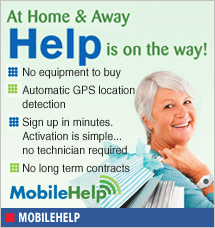Health Plus
Help with Health Care – Professional Patient Advocates a Growing Profession

When questions arise over medical bills, treatment options, insurance claims, undiagnosed symptoms, who do you turn to for help? Doctors, nurses, loved ones – maybe Google. Turns out there are professionals who can offer answers – and provide help.
These professionals are called patient advocates, sometimes known as health advocates or patient navigators. While the profession is in its infancy, it is slowly achieving greater recognition as individuals need help navigating their way through the increasingly complex healthcare system.
“Just as many people now have a financial advisor, personal trainer or life coach, more people are learning that they can hire a patient advocate with insider knowledge and direct experience about how the healthcare system works,” says Elisabeth Schuler Russell, founder of Patient Navigator consultancy and president of the National Association of Healthcare Advocacy Consultants (NAHAC).
Patient advocates provide a wide range of services that may include managing medical and hospital bills, filing insurance claims, choosing health or Medicare plans, finding the right doctor, challenging insurance denials, researching medical conditions, accompanying you or loved ones to medical appointments, among many other things.
“With all the significant changes happening in healthcare, most recently with the Affordable Care Act and the national and state healthcare exchanges, there is increasing need for help to navigate these uncharted areas,” says Vicki Breitbart, director of the Health Advocacy Program at Sarah Lawrence College in Yonkers, N.Y.
Currently, there are an estimated 150 patient advocates across all 50 states, comprised of nurses, physician assistants, social workers, medical billers, insurance advisors, and many caregivers whose personal experience helping parents or loved ones with healthcare decisions motivated them to get involved in the profession.
After a long career in the U.S. Foreign Service, Russell entered the profession after handling her daughter’s journey through an inoperable brainstem tumor. Knowing firsthand how difficult and frightening it was for her family to navigate the medical system, Russell pursued a new career path after her daughter recovered.
Advocacy in Action
As the baby boomers age, new insurance options emerge through the ACA and treatment options become increasingly complex, there’s a growing need for patients to work with patient advocates, says Russell. But skeptics warn patients that there currently is no certification or state licensure for patient advocates and no actual qualifications are required. This is not uncommon for professions in their infancy that are still creating standards and a code of ethics, says Breitbart.
To find a health advocate, AdvoConnection.com is a good place to start. All you need to search the free directory is an email address and zip code. Paying for an advocate will most likely come out of your own pocket. Advocate’s services are generally not covered by health insurance. It’s important to find out how much an advocate charges. There’s no standard fee for patient advocates, but hourly fees range from $60 to $250. Some advocates will waive their fee for an initial consultation to learn more about your unique needs.
Russell recommends asking for a written agreement or contract that lists out the services to be provided, estimated hours and how long the service will take. “Most advocates will put their information and answers to you in writing without hesitation,” she explains. “Don’t rely on verbal promises or commitments.”
Finding a Patient Advocate
There are several qualities to look for when choosing a patient advocate:
- Experience: Experience as a healthcare professional can be helpful in understanding the nuances of the medical system, but non-clinical backgrounds can prove useful as well. Find out how much experience they have in handling similar cases.
- Affiliation: Does the advocate belong to professional associations such as the National Association of Healthcare Advocacy Consultants (NAHAC) or the Alliance of Professional Health Advocates (APHA)? Membership is no guarantee for ethical behavior, but members of APHA and NAHAC agree to abide by a code of ethics with the goal of providing compassion and respect to patients and their families. Visit >www.nahac.memberlodge.com or www.aphadvocates.org to find out if the advocate is a member in good standing with either organization.
- Specialization: Word of mouth is one of the best ways to find an advocate. However, if your friend hired an advocate to handle insurance claims, that same person may not be a perfect fit for researching a rare medical condition.
- Communication skills: Does the advocate remind you of a salesperson who does all the talking, but doesn’t know how to listen? Good advocates will do twice as much listening as talking. Moreover, can the advocate communicate confidently about his or her experience and ability to help you?
Paul Wynn has covered healthcare trends for the past 20 years as a freelance writer.




























































